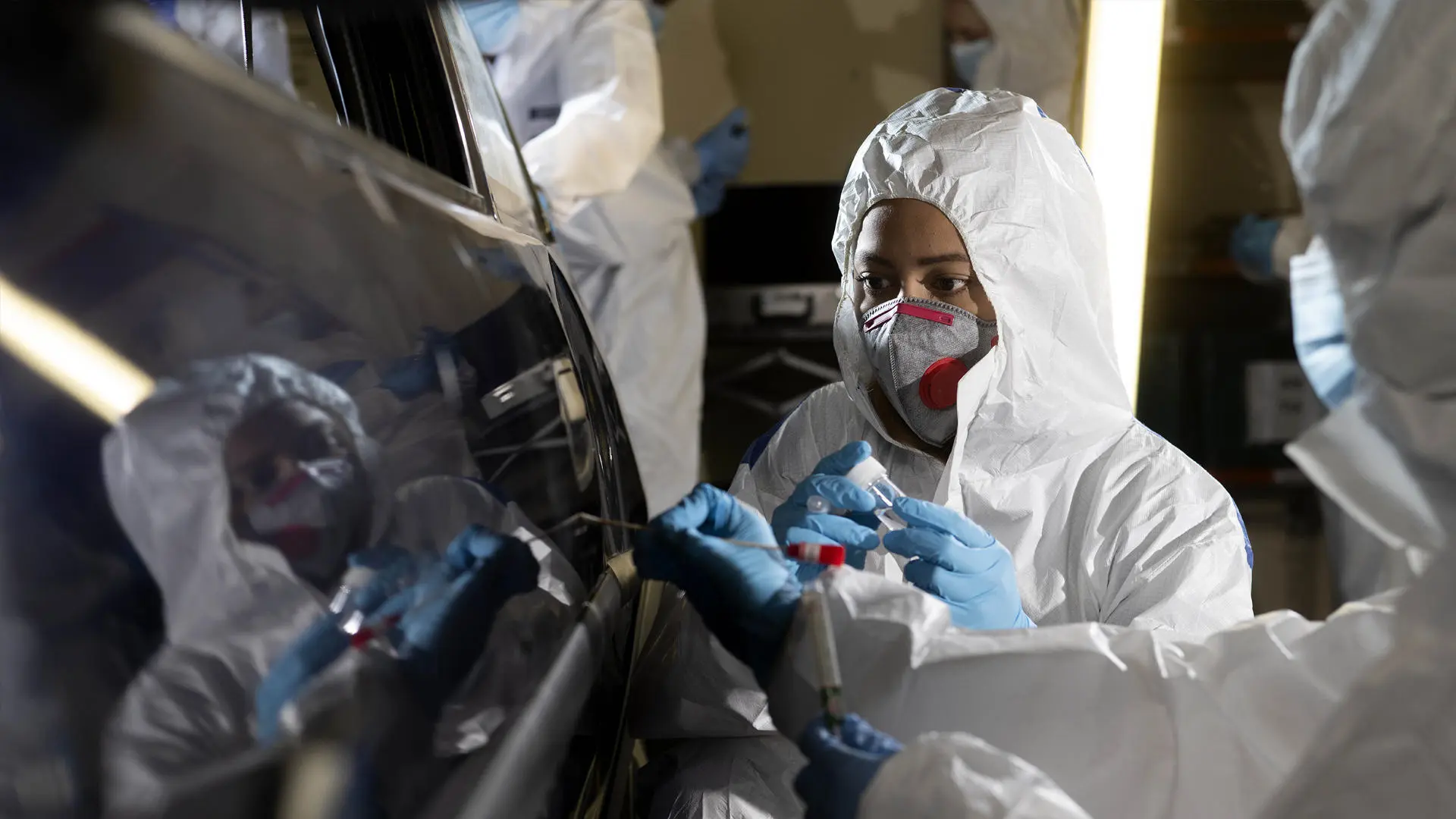Our Chartered Society of Forensic Sciences accredited courses are designed and taught by experienced forensic scientists, crime scene investigators, senior police officers and research-active academics.
Why study with us
- Forensic Science is ranked 2nd in the UK for student satisfaction and 1st in the North West for research quality (Complete University Guide 2024).
- You’ll learn from former practising forensic scientists and CSIs as well as academics who are leaders in their field.
- We are 5th for both overall positivity and learning opportunities in the National Student Survey 2023 (compared with unis in the Guardian University Guide).
- Benefit from dedicated facilities, including crime scene houses and flats, garaged vehicle examination bay, analytical unit, laboratories, and a Hydra Minerva Simulation Suite. You’ll also access our large anthropological collections of human remains.
What job can you get with a forensic science degree?
The skills gained in a forensic science degree will prepare you for employment in areas of forensics, chemistry or biotechnology. You'll gain knowledge in forensic investigation, crime scenes, law for forensic scientists and analysis of evidence.
Our graduates work in various sectors such as; government agencies, the Civil Service, education and research, NHS laboratories and private companies.
Studying forensic science could lead to a future career as a:
- Forensic Scientist
- Crime Scene Investigator
- Detective
- Toxicologist
- Scientific Laboratory Technician
Take the next step

Study a degree at UCLan
Interested in studying a degree with us? From exploring accommodation to visiting us at an Open Day, find out everything you need to know about life at UCLan.



















